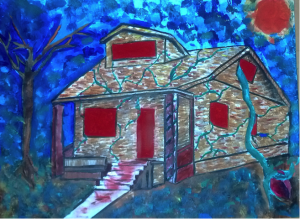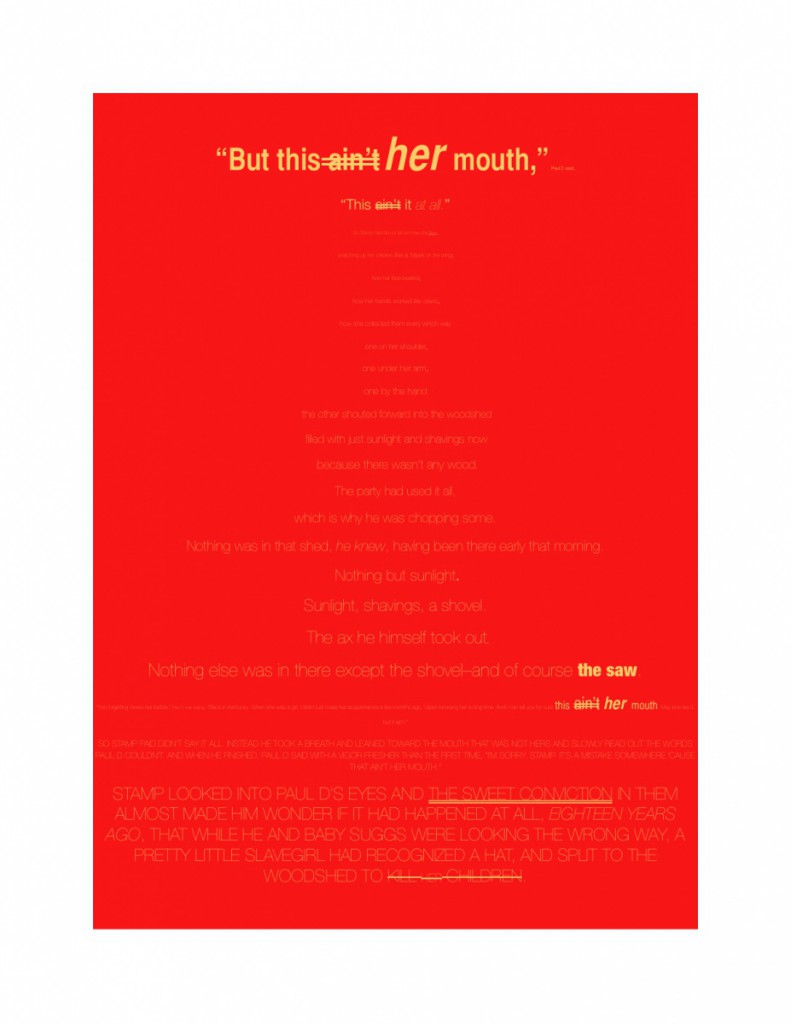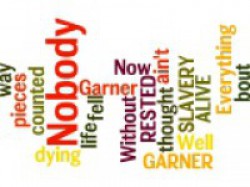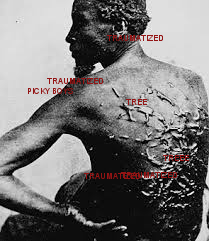On Teatime With Spinsters and Drowning Traditions
by Damaris Lliso
And I’ll tell you this much, the only reason why I’d ever go down to this rotting town full of the prim living past their prime is because I need to get away.
Chased out of town by some rabble-rousers who had it out for me, I swear, nothing ever stays quiet, even in a big city like Baltimore. Disproportionate retribution is what it was—get into a few disagreements, a shouting match here and there, he said this and I did what? And suddenly they see it fit to back me into a corner so deep I had no choice but to turn my whole damn life upside down.
So now I’m here past the border separating us from them. It was well known to everyone that I never thought much of the folks down south, but hell, I figure they wouldn’t think much of me either, not with my skin or my mannerisms or my family filled to the brim with Union vets. Can’t help who I am, and if they refuse to see past that then I can give them just the same. But let’s look at the positives: at least I managed to find work.
So I’m not expecting much. I’ll get what I get. I just came into town yesterday, and I still haven’t been out to see much. Don’t quite care to, only problem is work starts the day after tomorrow and I hardly know where the hell I am. Apparently where I’m to meet the others isn’t too far from where I’m staying now, but I know I gotta get to exploring this place sooner or later. I’d rather later, but I’ll do it now.
The world is damn bright outside, and mighty hot. The roads are dusty and hazy, enough to make a perfectly well man go blind, but I suppose I’m here to fix that now, aren’t I? Paving the roads and such. They don’t even have paved roads here! But I’m walking down now and folks are still giving me the eye. A few of them nod in acknowledgement and I nod back, but all the same, I have yet to feel too welcome. Bein’ looked down upon by folks who ain’t even got their roads paved, what a trip.
As I walk along, the road starts emptying out. Up in the distance there’s this big house you can tell once belonged to someone great, someone whose wealth was built upon the backs of others. I get closer and I see there’s this woman sitting up on the porch, all alone, looking out into nothin’… or maybe not, maybe she’s seeing it all. Who knows, I’m not inside her head.
But mother of God, is she a beaut. Gorgeous skin, wavy chestnut colored hair and a figure to die for, and I’m wondering wow, does she have a husband? But I already know the answer to that one, cause looker or not, it’s obvious she’s just past her prime, maybe around her early thirties or so. Northern girls marry young—Southern belles, even younger. She’s probably already popped out a few kids. She’s probably on that porch right now waiting for her husband to come home from work. She’s probably got a life wound up so tight that she wouldn’t ever give someone like me a second glance.
But it fees like hours that I’ve been starting at her like this, and occasionally she’ll turn her head up towards the sky and her lips will move, almost like she’s mumbling up something towards the sky. She bats her eyes like she’s half asleep, like her world is a dream and all of us, we’re nothing more that what’s in it. Her long, bony fingers reach up and she touches her collarbone real delicate. The wind rushes past her.
And she’s looking at me. She’s looking at me and past me and she smiles in that dreamy way of hers. She drags her fingers through her hair.
Man, oh man, this broad. She’ll be the end of me, mark my words.
I’ll admit it. I was wrong.
This town is a few types of alright! Everyone here knows everybody else and after work, they all love to follow me down to the bar. And all I gotta do to keep all eyes on me is start reminiscing about Baltimore. North or not, these are the types of folks you can tell have never been anywhere. They love hearing my stories.
Especially the younger guys! They crowd around me and hang off my every word, and some of them I can swear get a little too close, if you get what I mean. Not that I have any moral objections, but that’s what got me in trouble in the first place. When I came down here I told myself, as much as I would hate it, that I’d have to leave that life in another place and time. Well, they ain’t makin’ it easy, I’ll tell you that much.
So anytime one of those guys comes too close for comfort, I start thinking about that woman on the porch. I’ve asked around, and apparently her name is Emily. From what I’ve been told, she is as old as she looks, but joy o’ joy! she’s never been married. Her old man died a couple of years ago, but while he was still alive, he didn’t let anyone so much as look at his daughter, let alone marry her. I figure her to still be a virgin, still filled with girlhood dreams. Seeing as she’s all alone in that huge house of hers, she’s probably been aching for some man to come and sweep her off her feet. I’ve come across spinsters before, and I’ll tell you, they’re all the same.
So I leave her roses. Every night, late enough so that she has to be asleep, I sneak right on up and tape one to her door. I don’t know why I do it. I can’t be this girl’s savior. I’ll never be the marrying type. But it can’t hurt to bring a little sunshine into someone’s life, right?
Tonight feels different.
I can’t quite put my finger on it, but something’s off. The air feels different, not the same as always, and I’m trying to write it off but somehow, I just can’t. All day it’s been like this. Maybe I just stood out too late last night. Yeah, that must be it. Maybe all I need it some rest. I tell the boys down at the bar that I’m leavin’ early.
No, Homer, no. Don’t go, my temptations say.
But I tell ‘em, no boys, I gotta go. They all look so disappointed, but I try and ignore it. This creeping feeling, it’s got a grip on me, and I swear if I don’t get some peace from it soon I’m likely to start screaming and crashin’ around like a madman. Sure, they’d probably just write it off as me being a silly Northerner, but why would I willingly debase my region like that?
So I leave. I start walkin towards the direction of my place when I remember, damn. Emily. I gota leave a rose for her. I’ve made a habit of leaving her one every night for the past few weeks and if I stop, even for tonight only, I know it’ll shatter her little heart. This is probably the most attention she’s gotten from a man in her whole life. I can’t just screw her over by now coming through.
I turn back around and start walking towards Emily’s house. The roads are dark and empty, and I can hardly see past my own two feet. I narrow my eyes, try to hone in my senses.
I’m getting close to that one house I always steal my roses from. This older widow with her little lady garden, she never even notices a thing. What she doesn’t know can’t hurt her, right? As I’m walking past, I snatch up a rose, never breaking stride. The thorns dig into my hand a little, but I ignore it.
I’m getting close to Emily’s door. Everything’s all dark, all her lights are out. It ain’t even past 10 and she’s already asleep. Spinsters, sheesh. I get up to the front of her house and, since I got no tape with me, I pick up the doorknocker real gentle and place the rose there. I turn on my heel to leave.
“You’re early tonight.”
Damn, I nearly jump out of my skin at the sound of that. I turn my head up to where the sound came and there’s Emily, sticking her head out the window, leaning up against the frame.
She knew all along. She knew the whole damn time and wow, that’s as romantic as it is creepy.
I open my mouth, but no words come out. That creepin’ feeling is stronger than ever. I think she may be smiling.
“Would you like some tea?” she waits a moment for me to respond, before deciding for me. “I’ll have Tobe make you some tea.”
“Your husband?” I ask, all stupid. I know damn well she’s never been married, why’d I ask that? But these southern broads, you know, they all have secret lives on the down low. Tobe could be her secret lover-man or something. But I couldn’t even get away with it up in the city; she’d have to have some backbreaking skill to hide something like that in a place like this.
Despite my speculation, I can almost feel her shaking her head. “He’s the help.”
He’s the help? He’s the help! Joy o’ joy!
“Give me a moment, I’ll be right down,” she says.
Spinsters. How desperate can you get?
Emily is such a trip.
Silk hiding steel, that’s what she is. One hundred percent. She makes it a point not to hide what we’ve got goin’ on, doesn’t give any types of damns over it. Every Sunday, we go around town together and this is her, holding her head up high, her nose pointed up in the air like she’s looking down on everyone else instead of the other way around. I see the way folks look at us. Seeing us together, they can’t hardly stand it.
The boys down at work and at the bar, they ask me:
“What you doing with that old spinster, anyway?”
“Don’t you know how strange she is?”
“There’s a reason why she’s alone.”
And I tell ‘em, none of your business, I know, and because her old man wouldn’t entertain the notion of his little girl growing up. Is that all, or…?
I know people talk to her, too, whisper in her ear even worse about me. She never wants to tell me exactly what they say to her, but what she fails to realize is I’m savvier than I let on. I know damn well what they say, that no matter which way they word it, it all leads back to the same deal: I’m from another world, and I’m no good for her. She doesn’t care, and hell, the idea of people talking about me doesn’t quite make me as mad as it should.
I guess you could say she’s my woman now. Always wanted one of those. I always gotta remind myself, women are special and they need a different type of treatment; I can’t go treating her like a man, it ain’t right.
But I swear, she sure does treat me like a man would treat his broad. Sometimes. At least when it comes to all the gifts she gives me. I stole roses for her, and in return she gives me a buggy, along with a bunch of other things I could never hope to afford on my own. She tells me not to worry about it.
“Money is no object,” she tells me, with a wink. Her saying that makes me all warm and gets me riled up at the same time, it’s the queerest thing. Everything about her makes me topsy-turvy!
What gets to me the most is that she never wants me to leave.
Time marches on, and every day she gets more and more clingy. First, it started off with our Sunday drives: she told me she just wasn’t satisfied with only seeing me once a week anymore. To satisfy her, I started skipping out on going to the bar a few times a week so I could go visit her instead. But then a few times a week turned into every loving day of my goddamned life, and when it comes time for me to leave she yells at me to stay, stay, stay, she’ll miss me too much! I end up sleeping over more often than not, but then when I try and bed her she says no, no, she’s not like that. And that’s when I feel like throwing myself on the floor in frustration because this broad wants to have it her way, always.
She doesn’t seem to realize that I have a life of my own, too. Ain’t like we married. I’m starting to think I might wanna leave, but something inside me whispers, you better not.
I may be in a bit over my head.
I go over to Emily’s, like always, but today is different. She’s leaning against the door, her pretty little mouth twisted up into a bitter frown, and right soon as I get up to her she spares all greetings and says, “You mustn’t come visit me for the next three days.”
Joy o’ joy! I finally get a break!
She explains further. “A few of my relatives will be visiting me, and I don’t want them seeing you here. If you think the town thinks ill of you for seeing me, ha! You don’t want to know how these women will view you.”
She keeps talking, but I’m already thinking of how I’m gonna spend these next few days off.
“The pavement gig is almost done…” one of the boy’s grunts my way.
He keeps on talking, but I barely hear him. Today’s the last day of my vacation, and after two days prowlin’ around town, chasing skirts, they decided we should take it slow on this last day. I suggested we go fishing, something I haven’t gotten to do since I was a boy. My old man used to take me. He made his living off of fishing, and thinking back I’m sure he was sick of the water and of tryin’ to catch those damn things, but he always made time to take me out to his worksite whenever he had the odd day off. We’d wake up at three in the morning, get all our supplies up and ready, and then we’d spend the whole day out on the open water. And on these trips, we’d take the opportunity to bond and talk about life and its meaning and ‘why are we here’ and all that garbage that my life’s since run out of room for. He made all that nonsense seem so important.
When I wasn’t no older than fourteen years old, he got into a physical scuffle with one of the guys he worked with, and the bastard knocked my pops one good on the side of the head, rendering him immobile. And then—then—the son of a bitch couldn’t just leave it at that. He pushed him over the side of the boat. My old man couldn’t swim back to shore. They never found his body.
I wonder what it was like for him, drowning. He had to have seen the reaper coming, had to have known he couldn’t get out of it this time. He must’ve been terrified.
“You listening, Homer?”
“What’d you say?”
“Said the pavement job is almost done. Where you headed off to after this?”
“Don’t be stupid,” another one of the boys answers. “He’s getting’ hitched with Emily ‘soon as the job is done, ain’t ya! Move into that ol’ haunted mansion of hers!” he slaps my knee all jolly-like, and it takes everything in my heart, soul and mind not to punch him in the throat.
“Be quiet,” I mumble instead.
“What’s the matter? You aren’t thinking about leaving ol’ Emily, are you?”
“Perhaps he’s thinking of taking her up to Baltimore.”
I shake my head. “I’m ain’t goin’ back to Baltimore.”
“Never?”
“Never.” I sigh and pinch the bridge of my nose. “Keep this between us, alright? Emily is… God in heaven, how do I word this? She’s—“
“Too clingy?”
“Driving you bonkers?”
“Clinically insane?”
“Tries to murder you every time you try an’ leave ‘er house?”
“Come now, boys,” I grin, “I ain’t dead yet.”
“If she’s really makin’ you feel so down, just dump ‘er!”
You better not.
“That’s right. You aren’t married, you don’t need to forsake your entire life for her. The decision is yours, whether or not to continue this relationship.”
No, it’s not.
I shake my instincts away. “You’re right.” I spit into the water. “I don’t owe Emily a damn thing!”
One of the boys lets out this sad, ornery sounding laugh. “You do owe her one thing. You ought to at least break up with her properly, and give her a decent goodbye.”
I mull it over in my head. I proper breakup, a decent goodbye. I shrug. “Sure, why the hell not?”
You’re going to wish you hadn’t done that.
I’m walking up to Emily’s front door, and I’m expecting to have to knock like I always do, like any decent man living in a sane world, when all of a sudden Emily comes rushing out. Broad nearly tackles me down with her bear-strength hug of death.
“Homer!” she cries out, all dramatic. “I missed you!”
I pat her on the back. The spinster ain’t gonna make this one easy on me.
She drags me inside, leads me on and on until we’re in the living room. We sit down on one of the couches.
“Tobe! Tobe!” her man-servant comes shufflin’ on in. “Bring us some tea, will you? And brew Homer’s with the special blend I made for him.”
“Right away, Miss Grierson.”
I raise an eyebrow. “Special blend?”
She chuckles and waves me off a bit. “I remember how you told me your back was aching, so I bought some special herbs for you from the market. I don’t want to see you in pain, ever.”
Oh, wow.
She gives me a quick peck on the lips. “How did you spend the three days we were separated? Counting down the minutes, as I was?”
I try and smile. I know it must look painful from her end. “I tried to occupy my mind. Spent some time with the boys and whatnot…”
She frowned, and touched my shoulder. “Are you alright? Something on your mind?”
I take a deep breath—
You. Better. Not.
“Emily, my… my work here is almost done…”
She nods. “I’m aware.”
“And you know how it is for men like me. Once the job is done, I gotta get goin’ to the next work site.”
“I know. So…” she took a look around. “I suppose I’ll be able to carry a few of my things with me, perhaps sell the rest.” She looked back at me. “Do you have at least a general idea of where we’ll be headed?”
“What.”
“I’ll need to let my relatives know,” she goes on, like her entire plan is anywhere near okay. “They’ll most likely disown me, but it’ll be alright so long as we’re togeth—.”
“Emily!” I shout. She stops talking, and now she’s looking at me with those eyes of hers. Damn, damn, damn. “You ain’t comin’ with me. I’m going alone. This… is where the road ends, for you and me.”
Her bottom lip quivers a little. “Please don’t,” she whispers.
“Don’t make this any harder than it’s gotta be.”
“I want to marry you. I want to be with you forever.”
“Emily, I ain’t the marrying type. I can’t be your savior. You gotta let me go, for both our sakes.”
She looks at me for a long time; it feels like hours and hours. Her eyes narrow, just the tiniest bit. She’s looking at me and past me and…
Tobe comes in with the tea. “Here’s yours, Miss Grierson,” he places her mug in front of her, then turns to me. “And for you, Master Barron.”
“That’s alright,” I tell him, getting up from my seat. “I gotta get goin’ anyway.”
“Please, Homer! At least… stay with me these last few moments. One final cup of tea.”
Run run run run run run run ru—
“Okay. Just one.”
She smiles in that sweet, wide way of hers and it almost makes me regret what I just did. But I tell myself, I did it for me. I own my life; I have the final say in what happens in it.
I take a sip. It’s bitter as hell. My lips pucker up and Emily laughs, despite the situation.
“Drink it all, sweetie.” Who in the world ever called their ex sweetie? “The herbalist told me the faster it’s consumed, the stronger the effect.”
“I never heard anything like that.”
“Trust me.”
I think about it. Trust her? Do I trust Emily? She may be clingy and strange as hell, but the girl never did anything that really sent me over the edge. I put the mug to my lips and take two large gulps, swallowing them down before the taste can get to me. She smiles and nods. Go on, go on.
You’ll get what you get.
Even as I’m finishing the tea, I’m startin’ to feel a little off. It’s different from the creeping feeling… no, no, this time, the world is definitely spinning.
I think Emily might be saying something, I can hear the sound of her voice but I can’t make out… almost… not quite. I try and take a step forward, heading for the door. If I can make it to the door, I’ve made it outside, and from there I can go anywhere. My life is mine. My life is—
I stumble forward and fall straight on my face. Emily is laughing, that I don’t need words for that. There’s something different about her voice now. It’s higher than usual, way higher but more sinister. Almost squeaky. Wholly demonic.
I try and take a deep breath but woah, all I can feel is a rushing gurgle running through my chest. I take in about half the amount of air I need. I try again, and it’s even harder, so I cough to get out whatever’s got itself stuck in my chest. Is this what it feels like to drown? My vision’s gone real blurry but I can still make out the bright, bright red of what comes out of my mouth. I try again. No improvement.
Someone turns me onto my back. I can make out her outline. Tall and willowy, with her gorgeous skin and wavy chestnut hair and a smile that could rip the skin off any living man. She cackles. Makes the same sound and jerking movement over and over and over and over and it’s like my brain is a record gone broke. I try and scream, but all that comes out of my mouth is more of that warm liquid I know with all my soul is a bright ruby red. It trickles down the side of my cheek.
Was it worth it?
Another figure comes into my line of vision. Tobe. He takes my arms and starts dragging me away, past the hallway. I turn my head to the side, and there’s the door. It’s closed.
You’ll never know.
William Faukner’s “A Rose for Emily” tells the story of a young southern woman in the early 20th century who, while leading a rather peculiar life, murders the man that she loves and keeps his body in her home for more than 40 years, in order to keep him with her forever. The story is told through the rarely used 2nd person narration (implied to be the collective voice of the community in which the woman lives). And while this offers a unique perspective to how the events of the story play out, it leaves just as many questions as it does answers, concerning both the titular Emily and Homer (the man that she murders). In order to shed some light on the two, for my retelling I chose to shift the narration from 2nd person objective to 1st person, from Homer Barron’s point of view. Though the original story offers the perspective of the townspeople and sheds some light on what the opinion of the group can drive a young woman to do, this retelling provides both a possible explanation as to why Emily did what she did, as well as an insight into the relationship which existed between Emily and Homer.
Though the works differ in a number of ways, they both tie together similarly in a few key elements. One being the presence of dust: Emily’s home is described as being close off and dank “…they could see that the leather was cracked; and when they sat down, a faint dust rose sluggishly about their thighs” (Faukner); in the retelling, Homer observes that a layer of dust seems to have settled upon the entire town “The roads are dusty and hazy, enough to make a perfectly well man go blind…”. This transforms the house into a microcosm of the town at large. Emily’s home is dark, dank, dusty, and reeking of decay, while the town itself is not much better (though, the townspeople like to believe the contrary). Another example in which the retelling illuminates a specific detail of the original can be seen in the (rather ambiguous) line regarding Homers perceived preferences: “…Homer himself had remarked—he liked men,”(Faulkner) which, though a modern lenses, hints to a sexual preference for the same gender. However, considering the time period in which the original was written, the line can be just as easily interpreted to mean that Homer simply preferred the plutonic companionship of men. Through my retelling, I chose to interpret the line through a modern lenses, not to disregard Faulkner’s likely intention, but to bring forth a possible explanation as to why Homer is in the south in the first place: “Especially the younger guys! They crowd around me and hang off my every word, and some of them I can swear get a little too close, if you get what I mean. Not that I have any moral objections, but that’s what got me in trouble in the first place.”, the line implying that he did indeed pursue relationships with men, but was discovered and chased away from his community. One more important instance in which both the original and the retelling are the same comes from the buggy that Emily and Homer drive around in on Sundays’. In the original, not much is said about it, but because the retelling is from Homers perspective, a possible explanation can be offered: “I stole roses for her, and in return she gives me a buggy”. This makes sense, as Homer, a day laborer and implied drifter, most likely wouldn’t have the money to splurge on much of anything, let alone a buggy.
Along with the similarities, several liberties have also been taken to allow for the story to be at it’s most believable. One such instance is in how Homer and Emily first meet. It is never explicitly revealed in the original, because the style of narration prevents it. However, now from Homer’s point of view, the narrator can say how they met with the utmost certainty “so I leave her roses. Every night, late enough so that she has to be asleep, I sneak right on up and tape one to her door… I turn my head up to where the sound came and there’s Emily, sticking her head out the window, leaning up against the frame. She knew all along.” This scenario not only provides a possibility, but it also ties back in to the title of the story, adding just a but more to an already symbolically-packed title. Another instance in which the retelling takes some liberties is in Homer describing the way in which his father died: “He pushed him over the side of the boat. My old man couldn’t swim back to shore; he died.” Though Homers father isn’t mentioned in the original story at all and therefore has no significance in it, I wanted to tie his father’s death back to his own, as they both do end up drowning (the father out at sea, the son in his own blood). And one last significant liberty which is taken the “voices” which Homer hears, his “intuition” which serves to continuously warn him through the retelling (“You better not”). The voices can be interpreted in any number of ways: they’re Homer’s conscious speaking to him, they could be audio hallucinations, or they could be of supernatural origin. The voices are there to foreshadow Homer’s eventual demise.
Though both the original story “A Rose for Emily” provided a work of insight into the workings of a broken southern town past its prime, this retelling provides insight into the workings behind the story which was so greatly influenced by the whims of society. In my efforts to retell the story, I tried to maintain a level of believability, a way for the two stories to be connected in a plausible way. But I also sought to create a level of separation, so that in this retelling, a new dimension could be added to the story proper.










